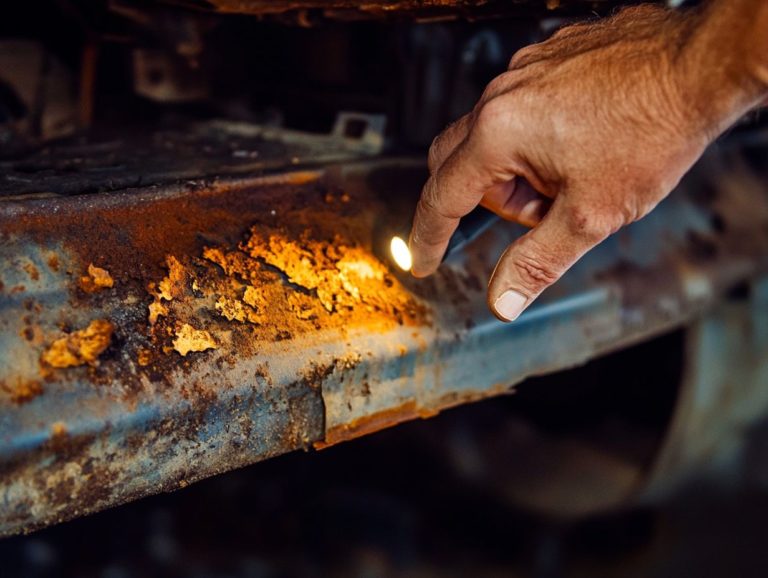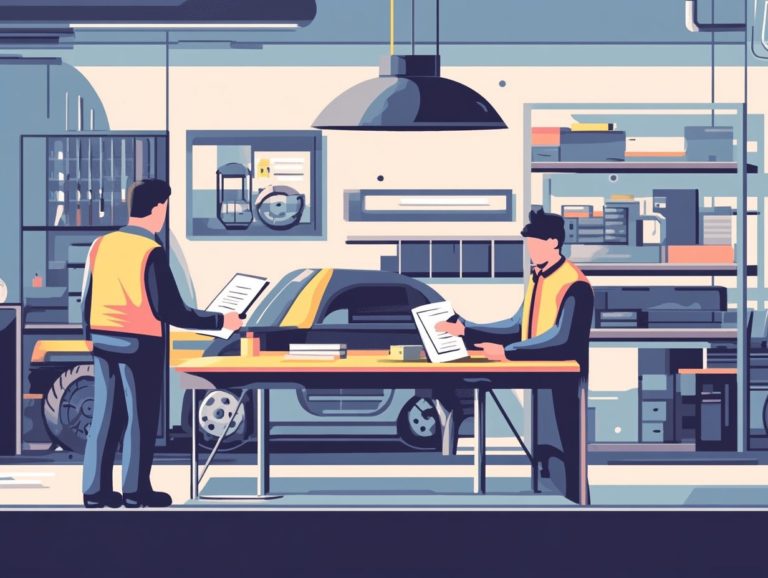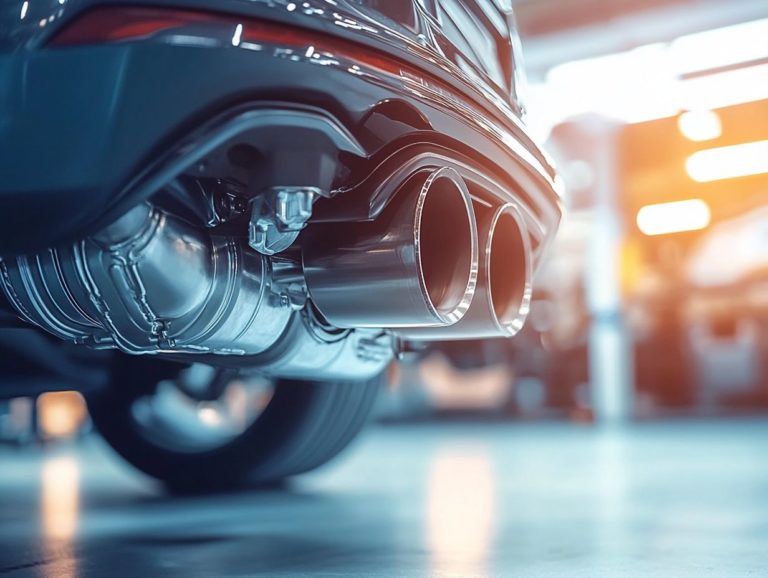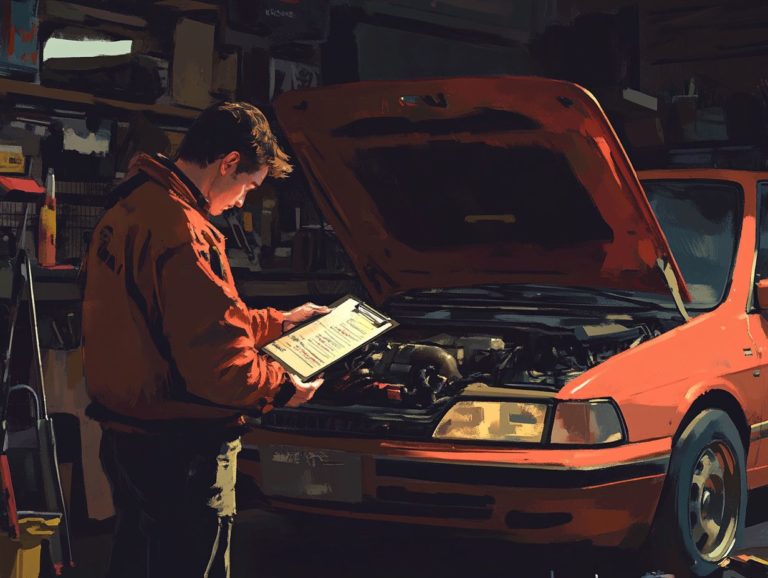The Complete Guide to Post-Purchase Car Inspections
Buying a used car can be an exhilarating journey, but it carries its share of risks. A post-purchase car inspection is a crucial step in safeguarding your investment and ensuring that you haven t missed any hidden problems. Let s dive into how you can protect your investment and enjoy your ride with confidence!
Contents
- Key Takeaways:
- Why Post-Purchase Car Inspections are Important
- What to Look for in a Post-Purchase Car Inspection
- How to Conduct a Post-Purchase Car Inspection
- Benefits of Hiring a Professional for the Inspection
- What to Do if Issues are Found During the Inspection
- Smart Tips to Avoid Costly Car Inspection Scams
- Frequently Asked Questions
- What is meant by a post-purchase car inspection?
- Why is a post-purchase car inspection important?
- What are some key areas that should be inspected during a post-purchase car inspection?
- How long does a post-purchase car inspection take?
- Can I do a post-purchase car inspection myself?
- Is a post-purchase car inspection necessary if I’m buying a certified pre-owned car?
Key Takeaways:
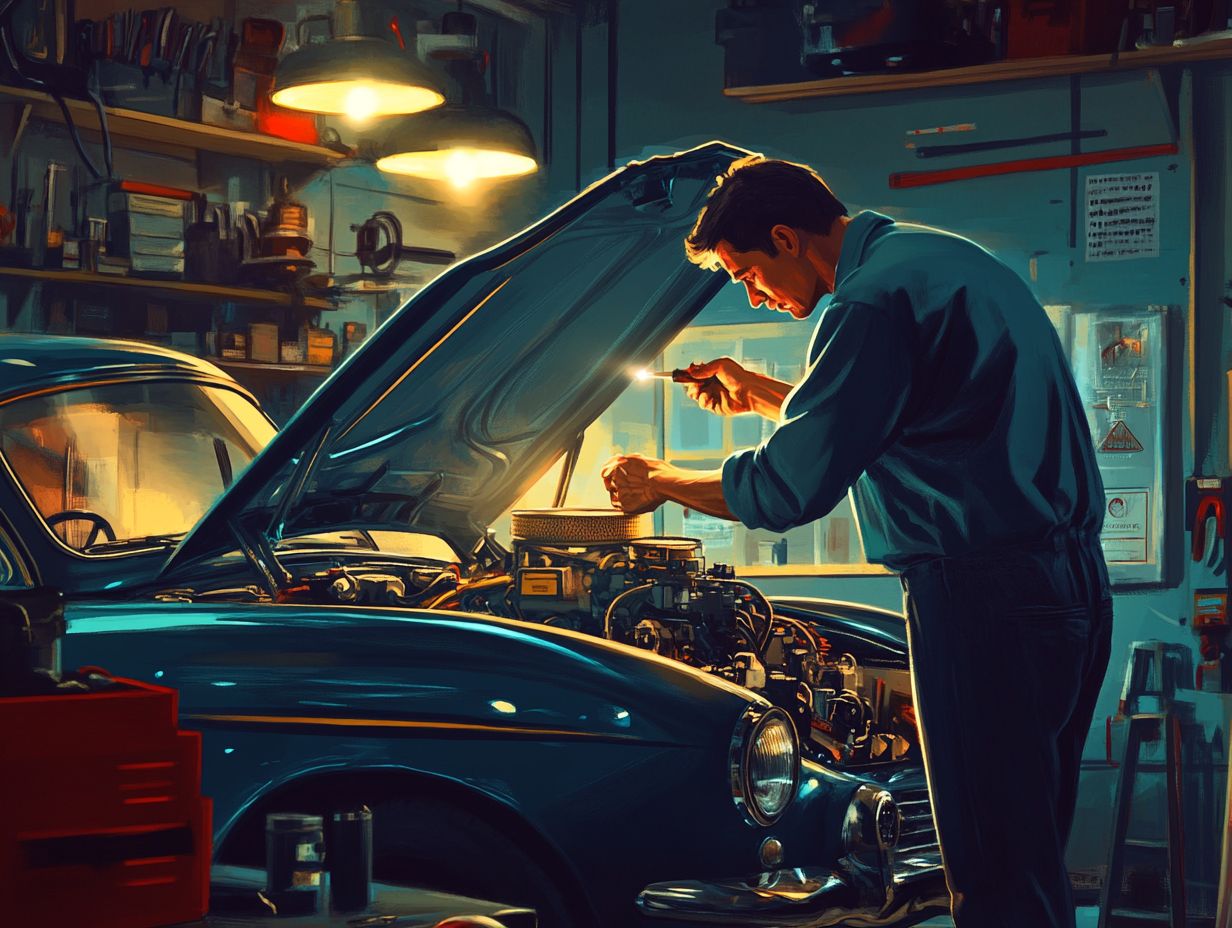
Why Post-Purchase Car Inspections are Important
Post-purchase car inspections are essential for you to ensure that your used car aligns with your expectations and is devoid of hidden issues. These inspections offer you a clear picture of the vehicle’s true condition, going far beyond what you might observe during a simple test drive. For a thorough understanding of how to conduct these checks, refer to the complete guide to a home car inspection. These inspections also verify the accuracy of the inspection report supplied by the seller, which often falls short in detailing mechanical systems and safety checks.
A thorough inspection can save you from costly surprises! By undertaking a careful inspection, you safeguard yourself against unforeseen repair costs and significantly boost your overall satisfaction with the purchase.
Understanding the Risks of Buying a Used Car
Buying a used car carries inherent risks that you need to be acutely aware of to make an informed decision. Without a thorough inspection process, you might overlook critical issues such as hidden problems, mechanical failures, and differences in maintenance history.
This oversight can lead to unexpected repair costs and complications during ownership transfer, which could ultimately affect your insurance documents and the vehicle’s market value. You may not realize just how significantly a seemingly minor issue can impact the overall performance and safety of your vehicle.
Identifying any hidden concerns before the purchase ensures that your future maintenance is both predictable and budget-friendly. By investing in a professional inspection, you can protect yourself from unpleasant surprises that might inflate costs down the line.
Any differences uncovered during inspections could also influence your insurance premiums, as insurers take a vehicle’s condition into account when determining rates. Ultimately, taking these preventive measures allows you to sidestep not only immediate risks but also long-term financial burdens associated with ownership.
What to Look for in a Post-Purchase Car Inspection
In the realm of post-purchase car inspections, your awareness of what to examine can profoundly influence both your satisfaction and safety. A thorough inspection checklist should encompass essential components, such as the vehicle’s mechanical systems, safety features, and an in-depth assessment of its overall condition.
Hiring a certified mechanic means you get a trusted expert to check everything. This ensures that all crucial elements ranging from brake systems and electrical components to tire integrity are thoroughly scrutinized, confirming that every aspect of the car is in peak condition.
Key Areas to Inspect
- Engine: Evaluate its functionality and performance.
- Brake Systems: Ensure all safety features are fully operational.
- Electrical Systems: Verify that all components are working correctly.
- Suspension System: Check for misalignments or worn components that could lead to performance issues.
- Fluid Levels: Evaluate oil and coolant levels to prevent overheating and engine failure.
- Tire Condition: Look for signs of uneven wear, indicating alignment issues or other mechanical problems.
By systematically addressing these areas, you can gain peace of mind about your vehicle’s reliability, ensuring a safer and more enjoyable driving experience.
Don’t leave your investment to chance. Get your used car inspected today!
How to Conduct a Post-Purchase Car Inspection
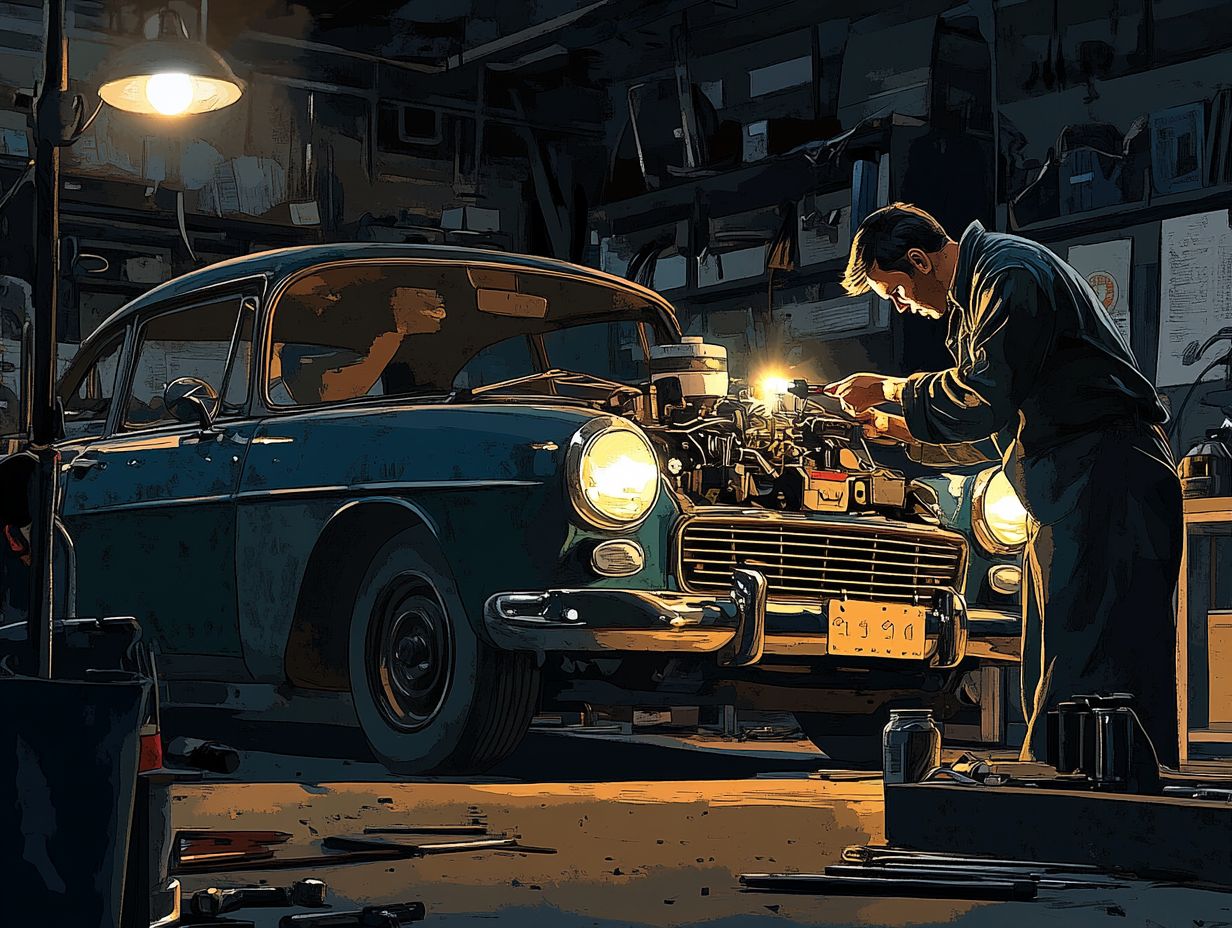
Conducting a post-purchase car inspection requires a systematic approach. This ensures that every crucial aspect of the vehicle is evaluated thoroughly, and referring to the ultimate pre-purchase car inspection guide can provide valuable insights.
By following a step-by-step guide, you can create a comprehensive framework for a detailed visual examination, assess functionality, and identify potential issues.
Using the right inspection tools enables you to gather valuable insights into the car’s overall condition and engine components. This knowledge is essential for negotiating effectively as a discerning buyer.
Step-by-Step Guide
Start your post-purchase vehicle inspection by gathering all relevant maintenance records. Understand the inspection report provided by the seller.
Once you have these documents, enlist the expertise of a certified mechanic. Their input during the inspection will ensure that every critical component, from engine performance to tire condition, is assessed for discrepancies.
Review the service history to pinpoint any previous repairs or recurring issues that could affect the vehicle’s longevity. After gathering this information, schedule a time with your mechanic for a comprehensive inspection.
During this process, focus on visible components and also check less obvious areas. The undercarriage and exhaust system can reveal hidden problems.
After the inspection, your mechanic should provide a detailed report of their findings. This document is invaluable for your future maintenance and can significantly influence your decision-making.
Benefits of Hiring a Professional for the Inspection
Hiring a professional mechanic for your post-purchase car inspection can save you both time and money don’t miss out on this opportunity!
Expert mechanics bring the skills and experience essential for thorough maintenance evaluations. They can uncover issues that might elude an untrained eye.
Their detailed inspections can identify hidden problems early and elevate your understanding of the used automobile market.
This comprehensive approach ensures you make a well-informed purchase, giving you peace of mind and confidence in your investment.
Expertise and Tools for a Thorough Inspection
Professional mechanics offer invaluable expertise and specialized tools essential for a thorough post-purchase car inspection.
With advanced vehicle diagnostics, they assess critical aspects of the car’s condition such as car parts and safety features that might escape notice during a casual glance.
The resulting professional inspection report provides a detailed analysis, helping you grasp the vehicle’s true value and condition. Equipped with state-of-the-art tools like computerized diagnostic scanners and precise torque wrenches, these mechanics dive deep into the car’s performance metrics.
Their extensive training enables them to interpret data accurately, turning raw numbers into actionable insights that enhance the quality of their reports. This expertise helps you make informed decisions and strengthens your position during negotiations with sellers.
A well-crafted inspection report can highlight potential repair needs, allowing you to leverage your findings to secure a fair price. This fosters trust and transparency throughout the buying process.
What to Do if Issues are Found During the Inspection
If you encounter issues during the inspection, approach the situation strategically. This minimizes potential repair costs and ensures a seamless ownership transfer.
Familiarizing yourself with the inspection findings allows you to negotiate effectively with the seller. This could mean lowering the purchase price or requesting necessary repairs before finalizing the deal.
By taking this proactive stance, you can be well-informed and protected against any hidden problems that might arise later.
Ready to get your car inspected? Don t wait schedule your appointment today!
Negotiating with the Seller and Next Steps
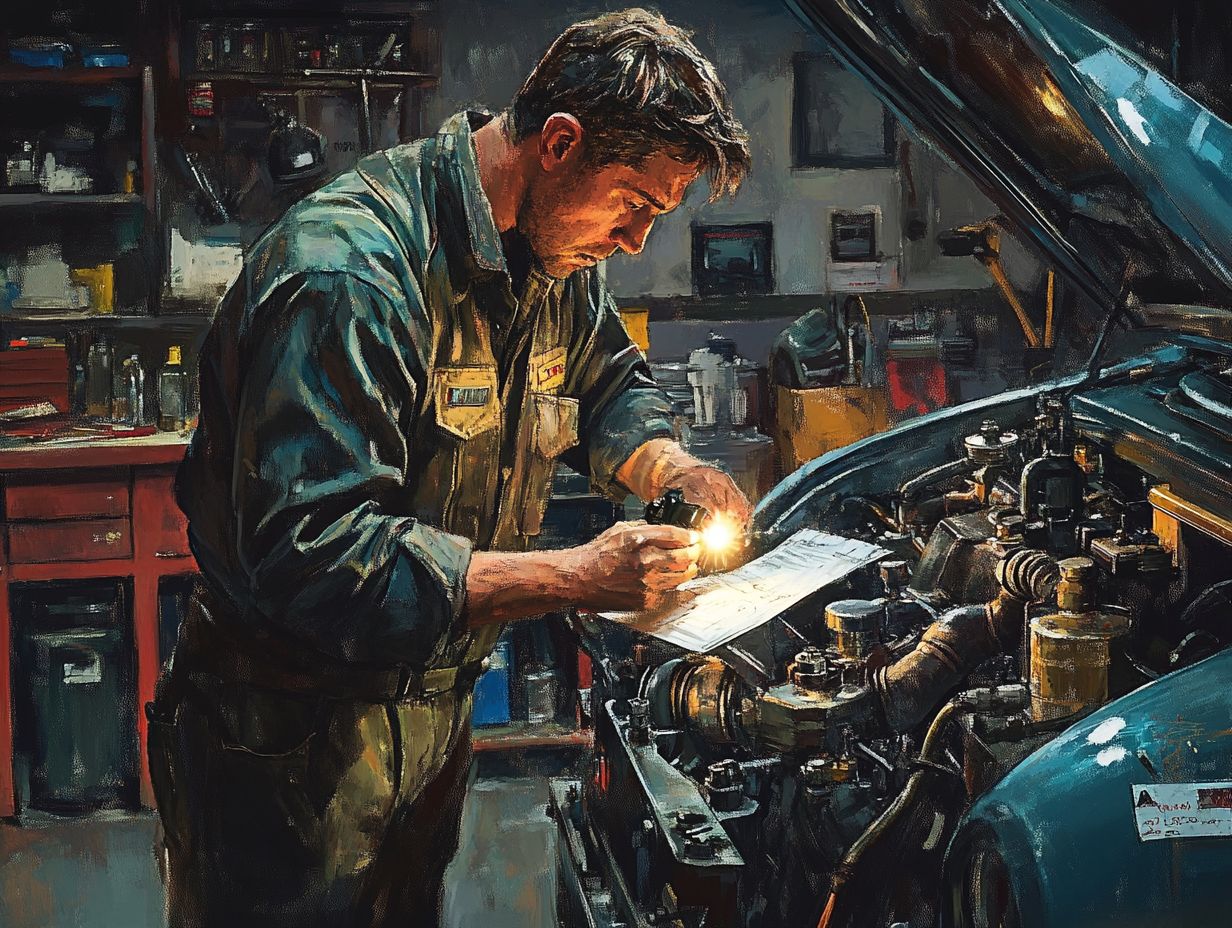
Negotiating with the seller after uncovering issues during the inspection is an essential step in your post-purchase journey. Use the inspection findings to negotiate a fair price adjustment or request necessary repairs before finalizing the deal.
Understanding what needs addressing protects your investment and strengthens your overall buyer protection strategy. Building a compelling case based on the inspection report can significantly increase your chances of achieving desirable outcomes.
Presenting documented evidence of required repairs to the seller can lead to negotiations that include lower purchase prices or requests for repair credits. Clear communication is key!
Maintain a professional yet assertive tone while articulating your concerns. Outline timelines for repairs and potential consequences if issues remain unaddressed.
This proactive approach demonstrates that you’re well-informed and fosters a constructive atmosphere for negotiation.
Smart Tips to Avoid Costly Car Inspection Scams
Avoiding post-purchase car inspection scams is crucial for securing a fair deal and protecting your investment. Stay vigilant and recognize red flags like inspection reports that seem too good to be true or mechanics who won’t let you attend the inspection.
Upholding high standards for inspection processes and knowing your rights as a buyer enables informed choices and effectively safeguards your purchase.
Red Flags to Watch Out For
When you’re in the market for a used car, keep an eye out for red flags to minimize the risk of falling prey to scams. Watch for discrepancies in the vehicle’s history reports or a seller s reluctance to provide maintenance records. An inspection report from a dubious source is another major warning sign.
Recognizing these signs helps you pinpoint potential car problems and make more informed decisions. Always verify the vehicle’s history through reputable services like Carfax or AutoCheck for accidents or title issues.
Scrutinizing the details in the inspection report is essential. Ensure it comes from a recognized mechanic or facility with positive reviews.
Assess the seller’s transparency by noting their willingness to answer questions and provide documentation. A trustworthy seller should be eager to share maintenance logs and details about any recent repairs.
This level of openness often reflects the vehicle’s true condition and their honesty in the transaction.
Frequently Asked Questions
What is meant by a post-purchase car inspection?
A post-purchase car inspection checks your vehicle closely after buying it. A certified mechanic or auto technician typically performs this to identify any potential issues, which is crucial for understanding what car buyers need to know about inspections.
Why is a post-purchase car inspection important?
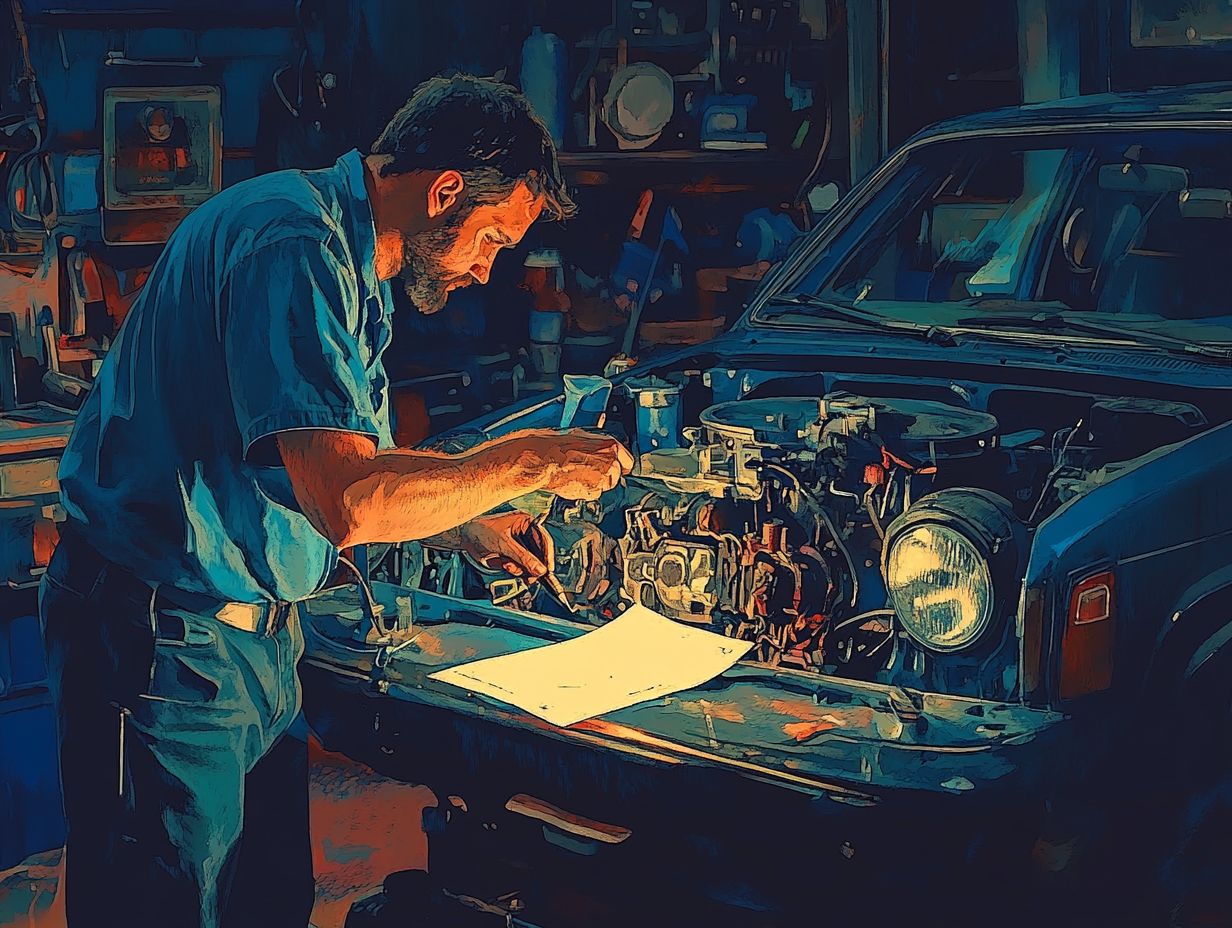
This inspection can help identify hidden problems with the vehicle that may not have been disclosed during the purchasing process. It can save you from unexpected repair costs and ensures the car is safe and reliable to drive.
What are some key areas that should be inspected during a post-purchase car inspection?
Key areas to inspect include the engine, transmission, brakes, tires, suspension, and electrical system. It s also important to check for any signs of previous accidents or damage.
How long does a post-purchase car inspection take?
The length of a post-purchase car inspection varies depending on the vehicle’s age and condition. On average, it takes about 1-2 hours to complete a thorough inspection. However, it may take longer if the car has complex or underlying issues.
Ready to negotiate? Use your inspection report wisely and secure the best deal today!
Can I do a post-purchase car inspection myself?
You can do a post-purchase car inspection yourself. However, it’s best to hire a professional mechanic to ensure a thorough check.
Is a post-purchase car inspection necessary if I’m buying a certified pre-owned car?
Yes, even certified pre-owned cars should undergo a post-purchase inspection. This independent check helps confirm the vehicle’s condition and prevents future surprises.


